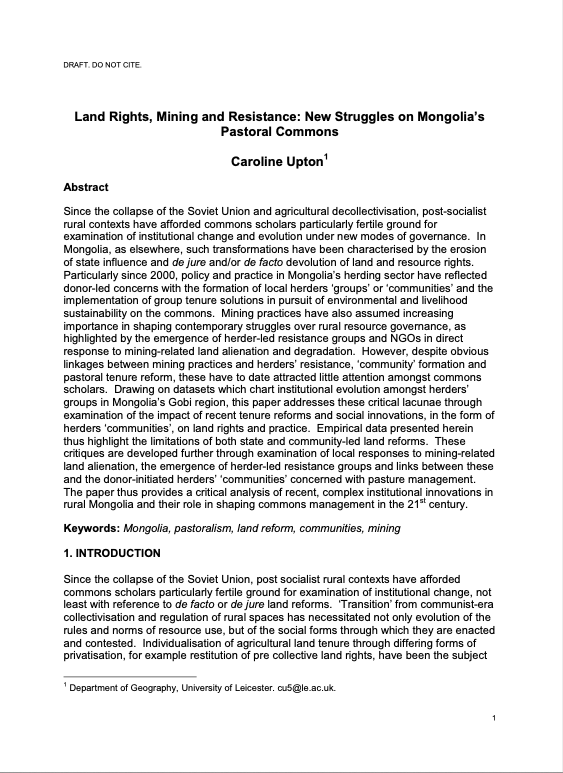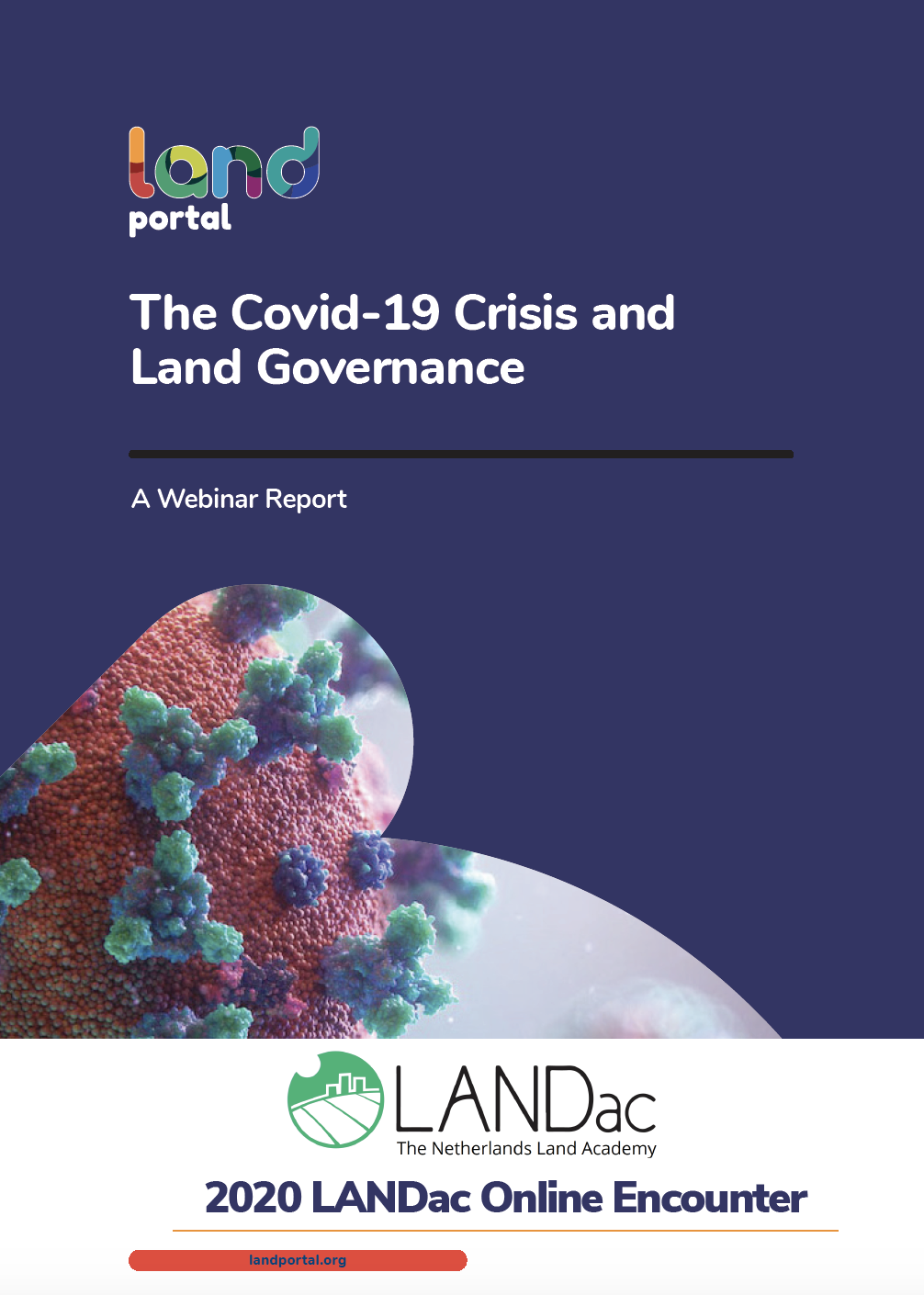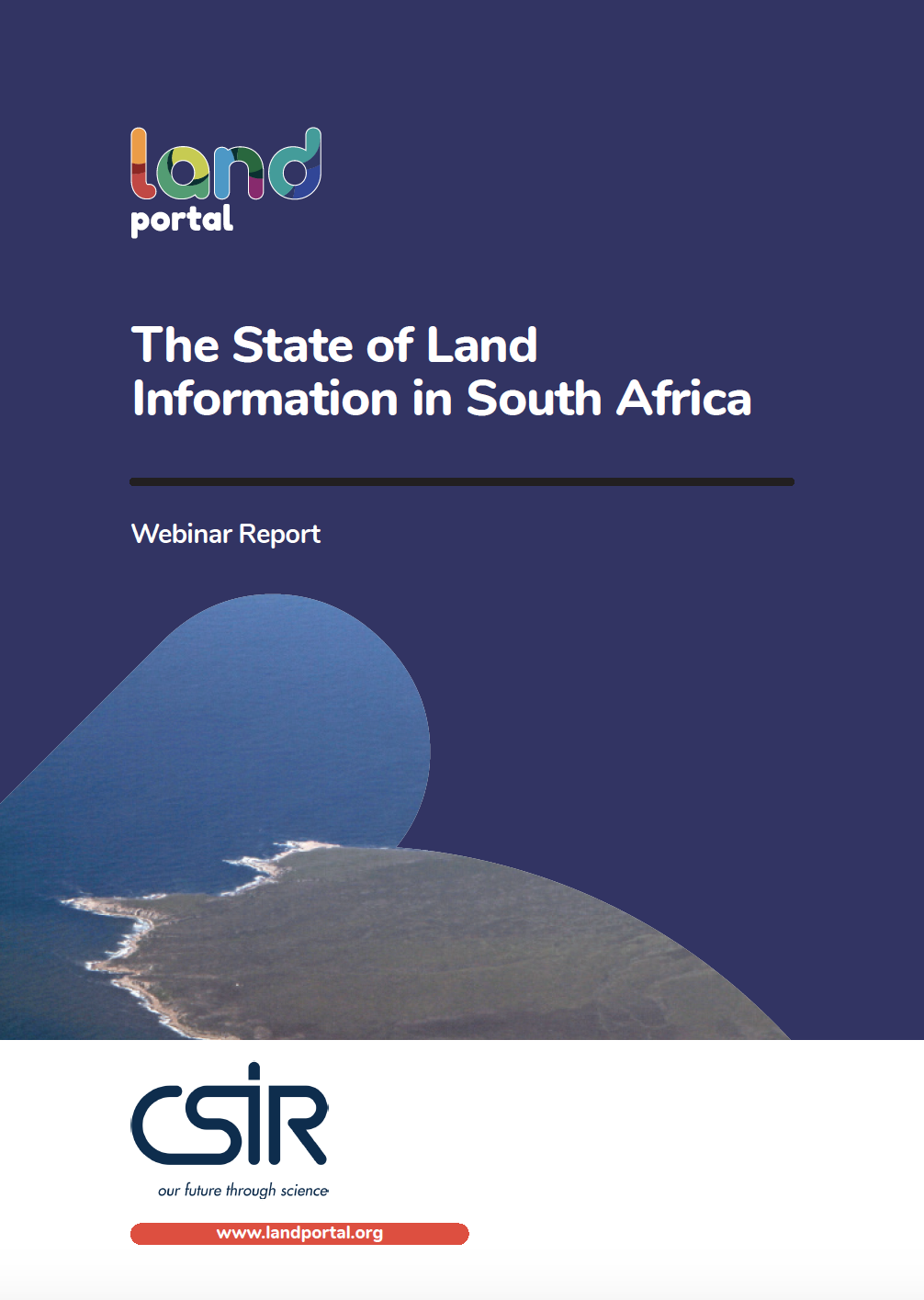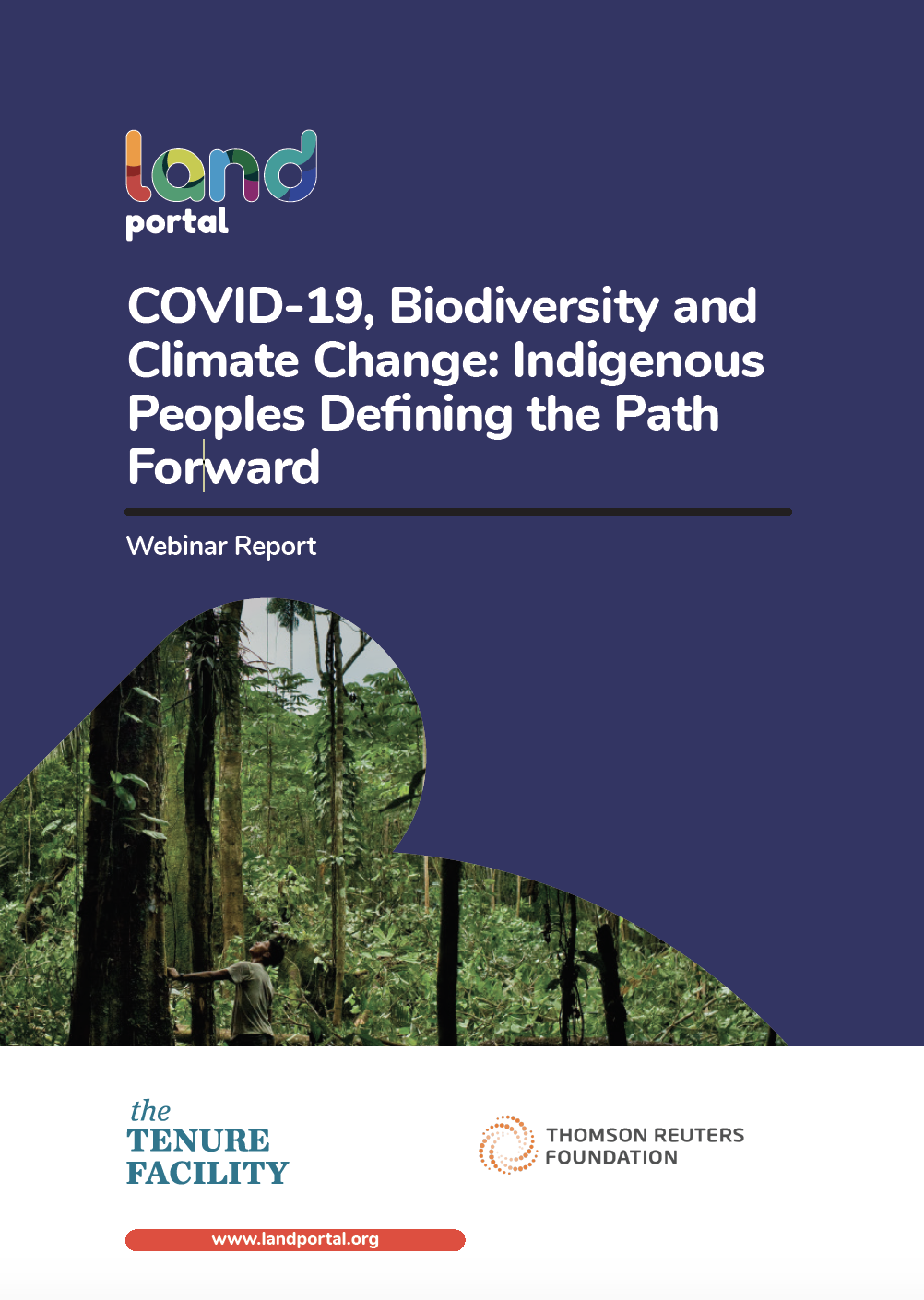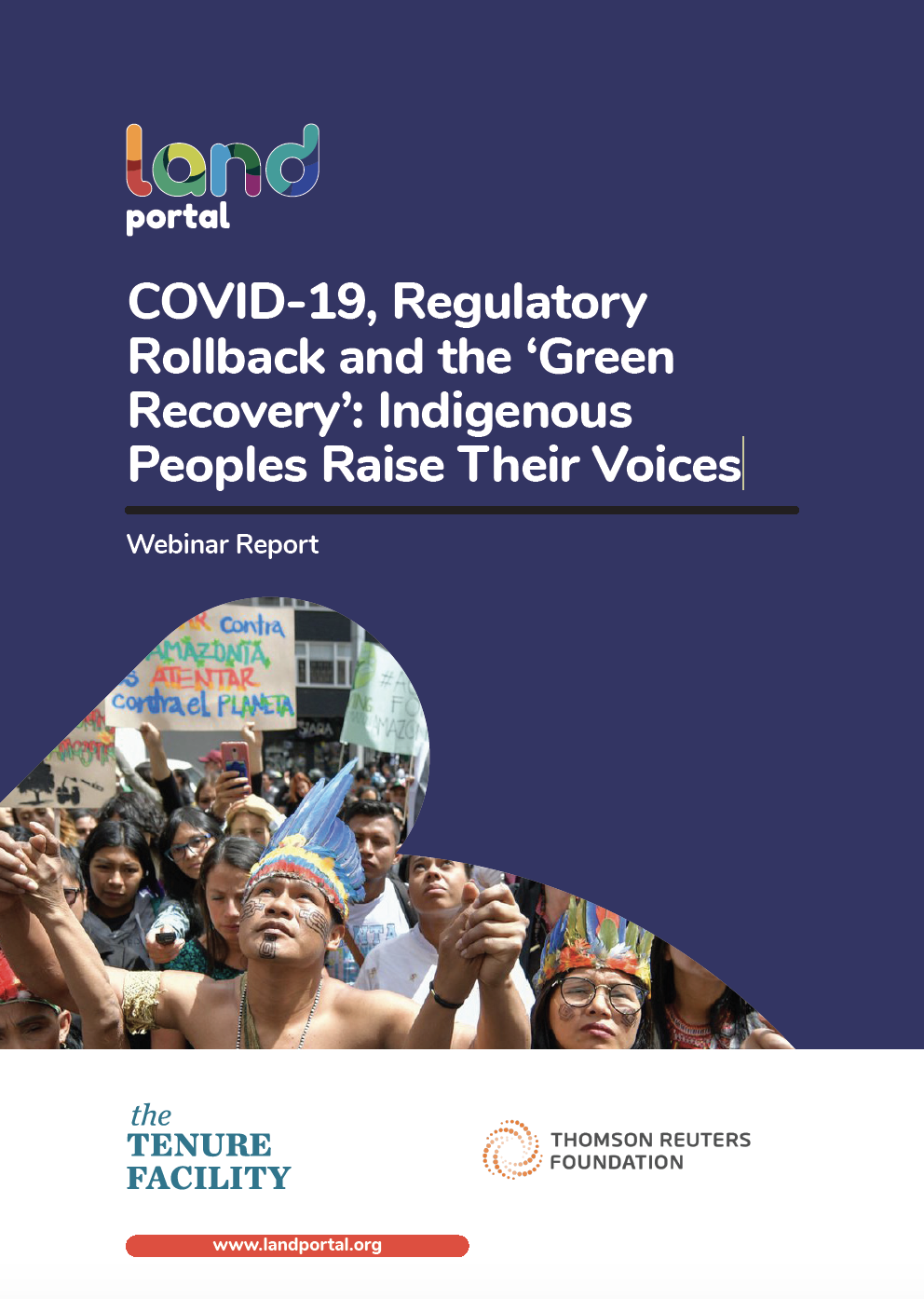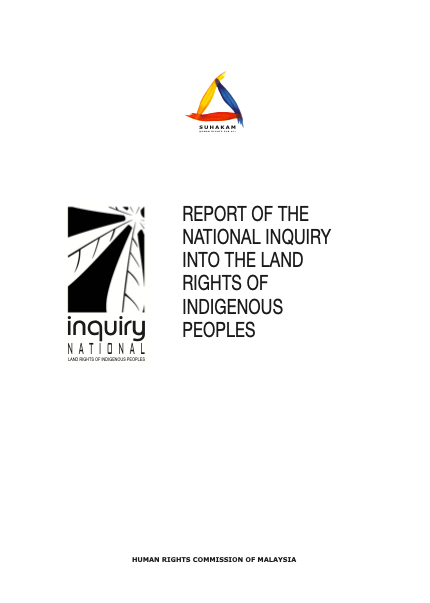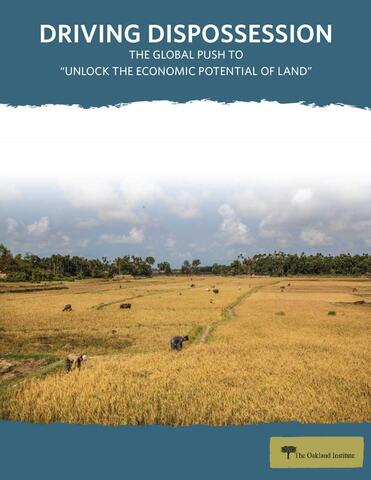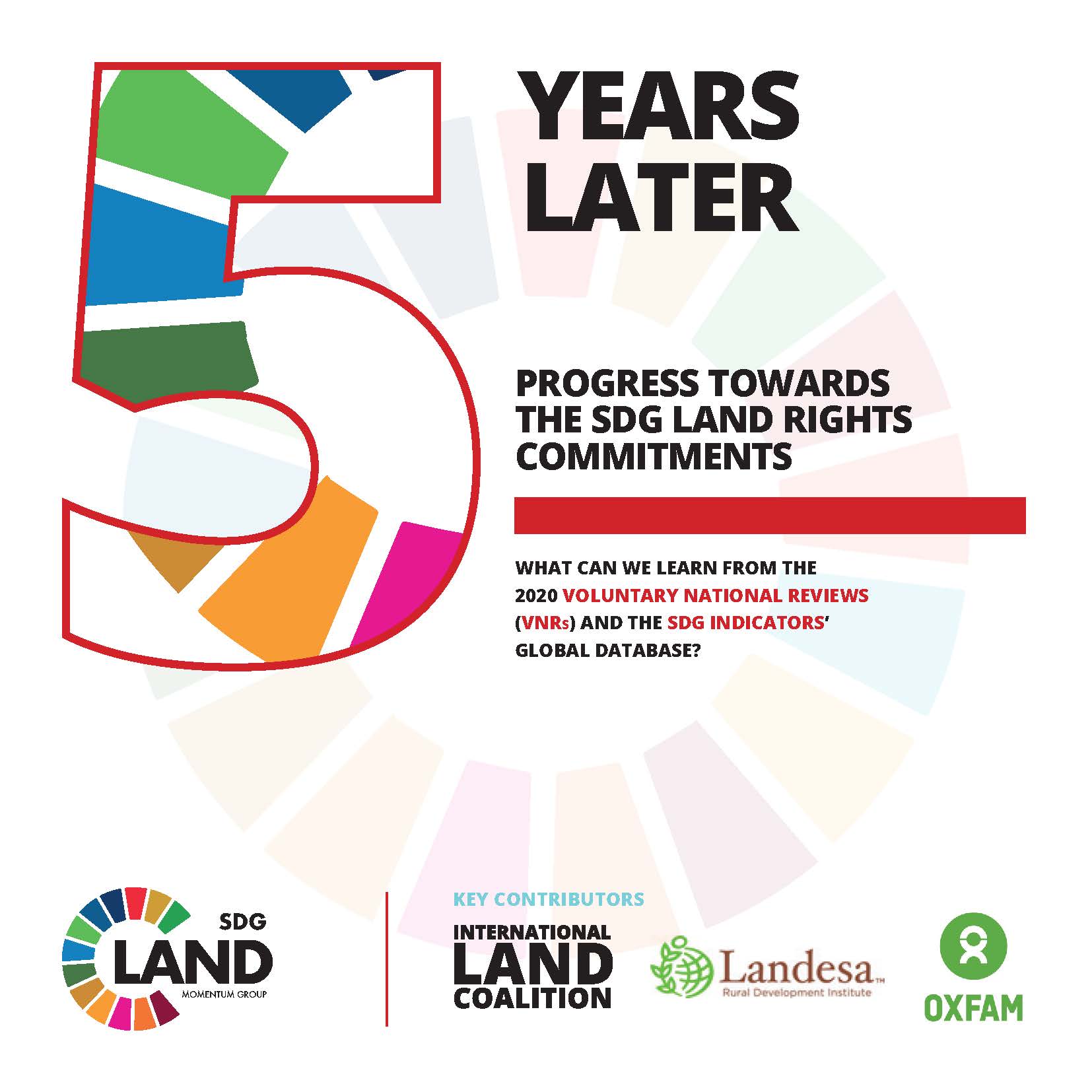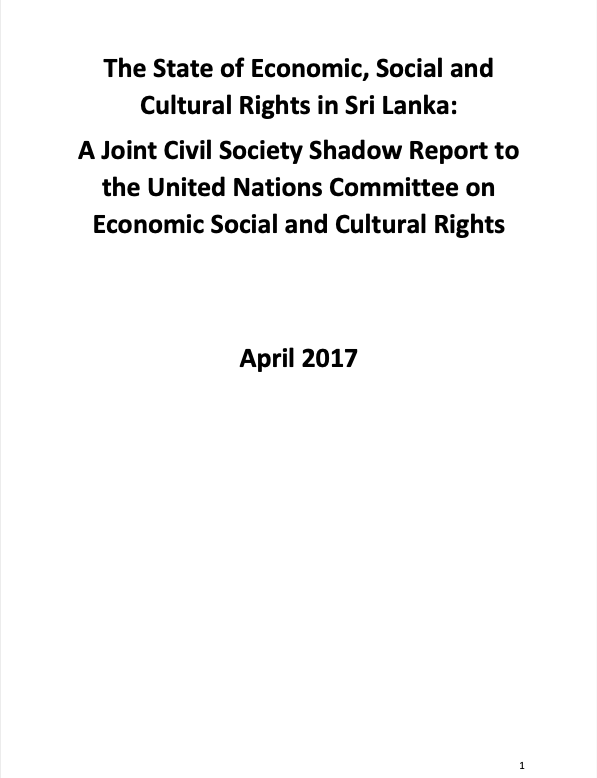Land Rights, Mining and Resistance: New Struggles on Mongolia’s Pastoral Commons
Since the collapse of the Soviet Union and agricultural decollectivisation, post-socialist rural contexts have afforded commons scholars particularly fertile ground for examination of institutional change and evolution under new modes of governance. In Mongolia, as elsewhere, such transformations have been characterised by the erosion of state influence and de jure and/or de facto devolution of land and resource rights.

